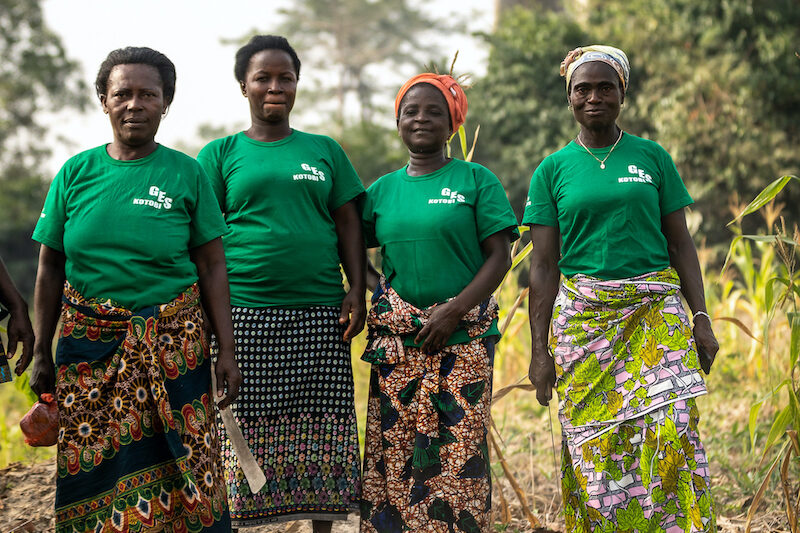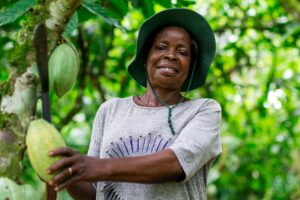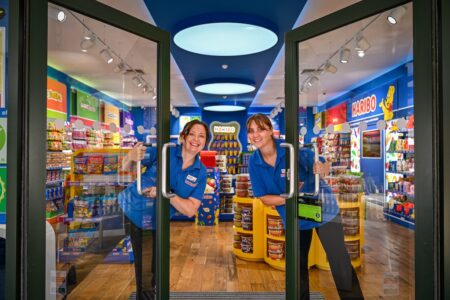Fairtrade report highlights key means of supporting cocoa growing co-operatives

pic: Fairtrade
Proposals for improving cocoa farming co-operatives have been revealed in a new report from the Fairtrade Foundation examining best practice in supporting core farming communities serving the confectionery sector, reports Neill Barston.
The global movement, which will be among speakers at this year’s World Confectionery Conference in Brussels, has explored factors that can impact positively on agricultural communities, based on cases studies of plantations in Ghana.
Among its core recommendations are exploring how farming groups can become better organised in gaining external support, as well as well as exploring means of fair distribution of positive benefits from working as a part of co-operative, as opposed to conditions in the majority of West African cocoa farms, that are carried out mainly by smallholders reliant on family support.
As renewed studies have shown, including research over the past two years by Mondelez International, at the core of the issue is the matter of farmer payment – with the global confectionery and snacks group previously identifying a $10 billion income gap for farmers in West Africa. Conditions amid the pandemic have further worsened the situation, with many agricultural workers earning no more than $1 a day, significantly below UN-defined world poverty levels.
In terms of Fairtrade’s work on supporting farmers, its latest report, backed by a grant from the Open Society Foundations, with its mission being to help the sector gain a deeper understanding of how to unlock the value of co-operatives for cocoa farmers. As it noted, this understanding is a critical addition to how the sector can work through farmer-led structures to ensure successful living income programming and realise progress towards improved incomes, rights and resilience for cocoa farmers, Fairtrade believes.
The report, titled What Makes Co-operatives Work?, outlines recommendations for Fairtrade and the cocoa sector at large, developed after researchers conducted an in-depth study into the functions of cooperatives and heard feedback from two case study cocoa cooperatives in Ghana. The recommendations include proposals for how better to identify obstacles to improving farmers’ experiences within co-operatives, and how to support co-operatives in their journey to scale impact for members and beyond, to sharecroppers and farm owners’ families.
Penned by Swiss-based researcher Dafni Skalidou, the study was supported by researcher Gladys Nketiah and Fairtrade Africa’s cocoa team, both in Ghana. The author was asked to provide an analysis of the co-operative sector in Ghana and gather farmer feedback on their experiences with co-operatives, in order to understand how co-operatives work and how they create and distribute benefits.
As Fairtrade added, the research was carried out through focus group discussions with cocoa farmers in Fairtrade’s West Africa Producer Network, as well as interviews with a range of relevant stakeholders in the sector, including co-operatives linked to the movement. Following feedback from participating co-operatives, the research offers a series of next steps for both active co-operatives in Ghana as well as for the external stakeholders who seek to support them.
Among the recommendations are a call to focus on: the inclusion of sharecroppers in training activities and incentives provided by co-operatives; the creation of better value chain guidelines for more coordinated and diversified external support; and the facilitation of better co-operative networks and platforms that include space for co-operatives to address internal challenges confidently as they arise.
The report also recommends investment in leadership skills among young people in cocoa farming communities, in order to prepare more actively for the next generation of co-operative leadership. Elsewhere, it highlights the need for the sector to prioritise governance strengthening that will build a solid foundation for co-operatives, before making large investments in operational or programmatic activities.
Brian Doe, Programme Development Manager at the Fairtrade Foundation, said: ‘This report comes at a particularly important time for the Fairtrade system: 2021 was a critical reflection point for Fairtrade’s growing, and often new, programmatic partnerships to strengthen our certified cocoa co-operatives in West Africa beyond advocating for increased sourcing on Fairtrade terms.
‘Last year, Fairtrade International commissioned an external evaluation of our West Africa Producer Network’s ‘West African Cocoa Programme’. This found clear evidence that small-scale producer organisations are more effective and resilient as a result of these tailored programme partnerships with Fairtrade. However, there is still work to be done to unlock long-term outcomes in income, rights and climate resilience sought by farmer communities.’
Mr Doe added: ‘Our new report, supported by Open Society Foundations, presents a much-needed opportunity to interrogate factors that can support or hinder the success of cocoa co-operatives in Ghana in creating value for farmers. The voices and experiences of farmers was critical to the recommendations in the report: we hope they are heard by the sector, so that together we can better unlock the potential of producer-led co-operatives to improve farmers’ lives.’

External factors
According to the Fairtrade report, a range of internal and external forces factors can affect a co-operative’s ability to support farmers. Internal factors include: the similarity and integration of its members within the co-operative; the formation and organisation of the leadership class in a collective organisation; how operating procedures are designed to promote equitable distribution of benefits across farmers and cocoa producing communities; and, lastly, how a dynamic governance system ensures transparency and inclusion across the three elements of membership, leadership and operations in a co-operative.
At the same time, strengthened internal co-operative structures are forced to navigate external factors that also affect their ability to drive benefits for their members, says the report. The research identifies several important external elements that most affect co-operative action. These include the complex relationships between farm owners and farm workers, linked to larger social traditions in Ghana, and the pressure put on co-operatives to negotiate partnerships with commercial actors that may encourage centralising power rather than allowing for democratic, decentralised decision-making in an organisation.
A further external factor is the growing role of public institutions, such as the Ghanaian Department of Co-operatives, which have the potential to drive a policy of collective ownership of the cocoa sector but are also impacted by complex political pressures and limited means.
The paper presents an analytical tool designed to help co-operative structures evaluate their own ability to create impact for their members and cocoa farming households. It notes that understanding the nature of a co-operative’s value to farmers – as well as possible obstacles to positive impacts – directly correlates with how producer organisations will help farmers navigate mounting challenges for smallholder farmers, such as climate change and volatile cocoa incomes.
‘This research highlights foremost the need for more of this type of critical analysis on the dynamics of how a particular co-operative structure, through its unique history, trajectory and relationships with external actors over time, can succeed in bringing tangible value to the members that join it,’ concluded Fairtrade Foundation’s Brian Doe.



